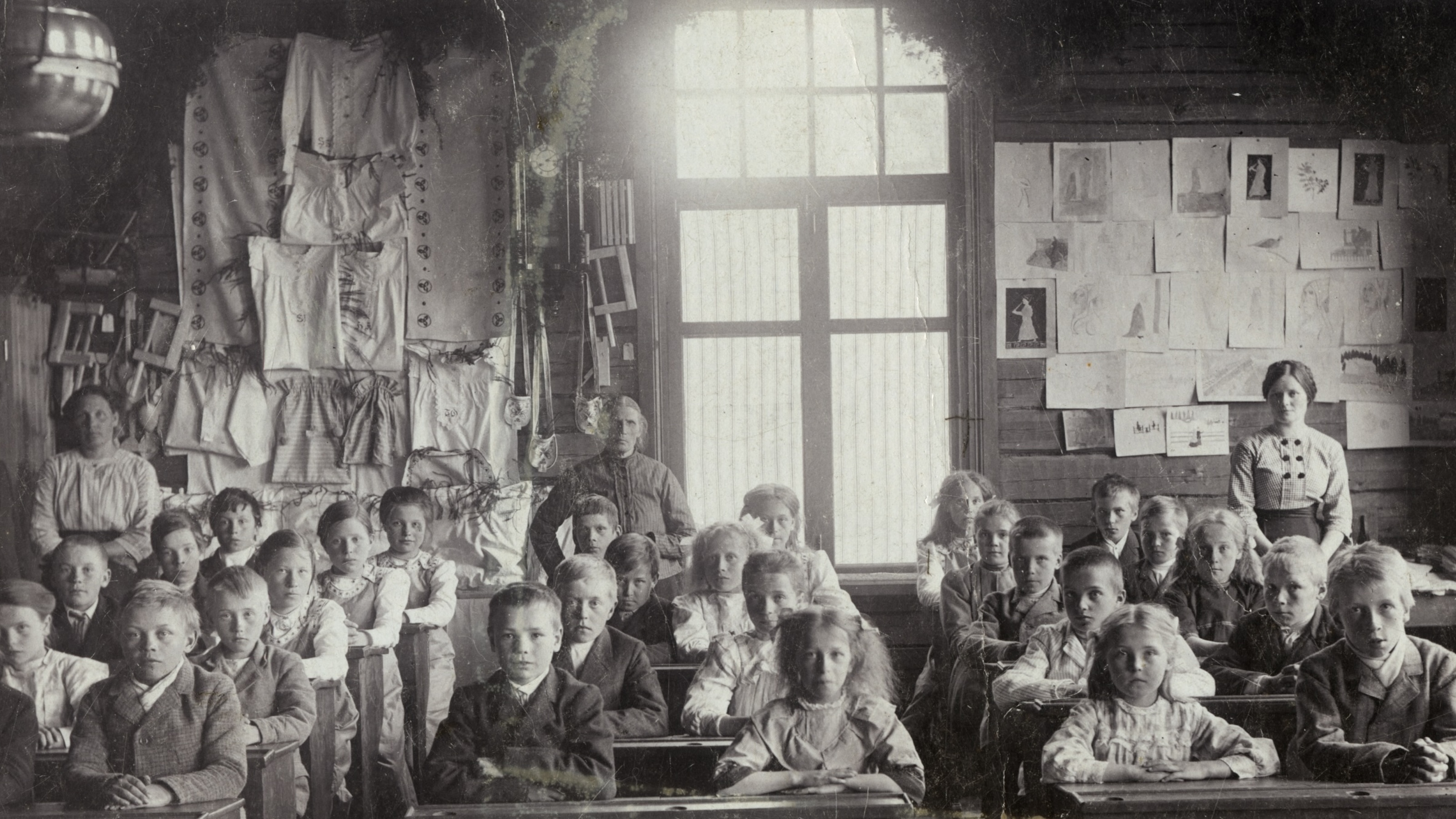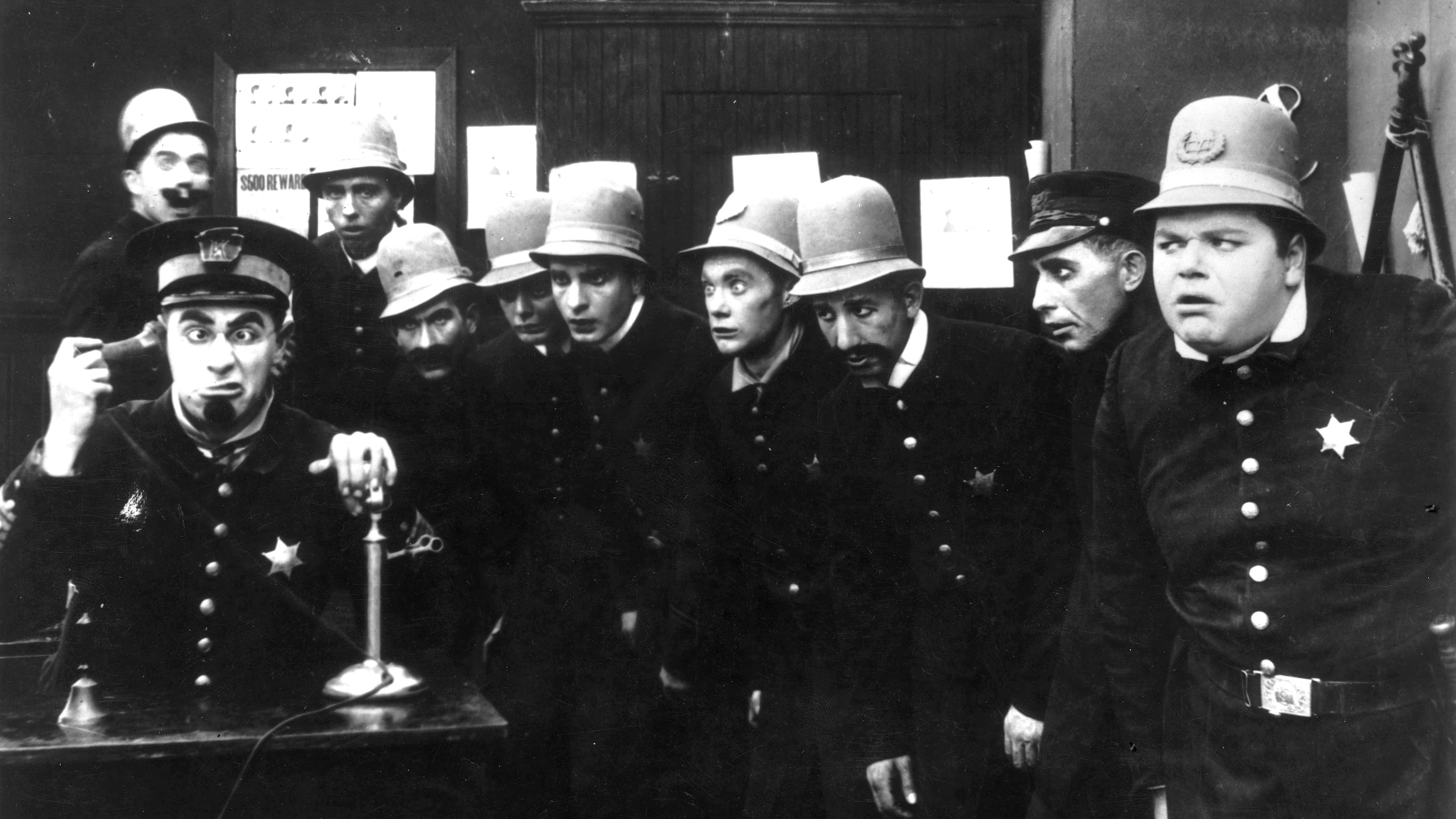Why being a “good kid” can make you a “bad boss”

Credit: Archives of Ontario / Public domain / Wikimedia Commons
- Neuroscience has revealed that the ways we learn to think, feel and behave in our earliest relationships as children can stay with us.
- There are knock-on effects for leaders who were once seen as “good” children.
- Understanding types of “good” can help bosses manage the child within.
Being a “good” kid can be good for us — at least when we are a kid. But staying that way isn’t always beneficial for us as adult leaders. And as much as we might like to think of ourselves as different now, our experiences as children and how we behaved back then can stay with us in hidden, unexpected, and sometimes unhelpful ways.
Whilst we like to think of ourselves as “changing” as we grow, neurologically speaking that’s not the case as old tendencies to think, feel or behave in certain ways remain within us. As far back as the 1950s, the research of the psychologist Donald Hebb showed that our neural pathways grow stronger as experiences and behaviors are repeated. These are chains of brain cells that activate when we experience something, and fire quicker and more intensely when used often. This is why and how we become faster to recognize or respond to some things more than others, what enables us to home in on familiar faces in a crowd, and why some people tend to smile more — because those neural pathways have become more established.

Indeed, this persistence of stable neural pathways is what enables us to remember things. And because they remain, they can still affect us, especially in moments when we are under pressure and don’t have the time or wherewithal to be more considered and deliberate. This is why in tense, busy or stressful moments, we can find ourselves falling back on old ways of thinking and behaving.
Secondly, although we can form new neural pathways, they are built on the foundations of the existing ones. For instance, studies looking at the brains of bilingual people have shown that the languages you already know tend to influence how you hear and process new sounds from a third language. So, anything new we learn is influenced by the sensitivities and tendencies we already have. This is why ways of thinking and feeling can become generalized, so that — for instance — people who are optimists tend to be optimistic about most things. And it is why once we learn to be one way, we rarely become the opposite.
These, then, are the mechanisms through which the ways we learn to think, feel and behave in our earliest relationships as children can stay with us. And what this means for people who grew up being seen as “good” children is that these behaviors can continue to influence how they act decades later as bosses. Precisely how we are affected as adults by our earliest neural pathways depends upon the experiences and specific tendencies they created. Or, in other words, the type of good kid we were.
The thoughtful child. Some children grow up especially sensitive to what others are feeling and are keen to keep them happy. When this tendency persists into adulthood, these individuals invariably meet as caring, considerate and highly able to make themselves liked. But as ever, too much of a good thing can be bad for us. And this is why studies have repeatedly found that leaders who are ‘too nice’ — to the point of wanting to avoid tensions or upsetting people — can find it more difficult to address poor performance and drive unpopular change.
The obedient child. Some children, meanwhile, grow up focused on what others’ want and expect from them, and are keen to avoid criticism. They do what they are told, don’t challenge opinions or instructions, and work hard to fulfill their parents’ expectations. As bosses, this focus can help them meet their objectives. But when overdone, complying with expectations can also hinder performance, as studies show that individuals high with compliance tendencies tend to be less proactive and less able to drive innovation. As a result, these bosses can struggle when they get into situations where they need to set an agenda themselves, and they can be prone to focusing on what the business wants at the expense of proactively seeing and pursuing what it needs.
The positive child. Finally, there are kids who try to maintain harmony and positive vibes, and avoid or smooth tensions. They tend to appear more sociable and positive, which can make them great networkers and easy to like. Yet underlying this, there is often a desire for approval or a strong anxiety response to conflict. Unsurprisingly, studies have found sensitivity to conflict to be higher in children growing up in families where there is a lot of conflict or where there are high levels of punishment. But perhaps more surprisingly, these studies also show that those growing up with very permissive parents or who are rarely punished have been shown to be more sensitive to criticism and conflict (presumably because they are not used to it). Whatever the cause, individuals with a sensitivity to tensions tend to be more proactive in seeking to avoid, minimise or resolve them. This can be a strength but it can also become a tendency to back down from arguments that may be useful to have.
Managing the child within
When under pressure, we’re more prone to demonstrate behaviors underpinned by these traits which can have a negative effect on our performance because, as leaders, we sometimes need to be able to not please, to not do as expected, and to not keep the peace or compromise. In those moments, we need to more aware of how the past has shaped us, so that we do not just instinctively revert to old ways of behaving.
So, what can we do to better manage the child within so their traits don’t impact the bosses we become? Here are three steps you can take.
- Understand the old preferences and tendencies you fall back on when under pressure. Identifying how the past affects you requires more than a quick, “yeah — I’m like that” approach. One way to start exploring this is by thinking about which type of good child you were from the examples above and what specific behaviors made you good. This can then make it easier for you to see to what extent how you think, feel and behave under pressure involves some of your childhood tendencies. Once you’ve done that, you are then able to question how these traits can help you, and when they might not.
- Take proactive steps to stop any unhelpful habit hangovers. Simple behavioral routines work well here. Maybe a phrase you repeat (e.g., “I’m not going to do X.”), or even something physical like standing up or tapping the desk. For example, a leader we worked with who realized they had a tendency to rush to mollify people showing anger or frustration developed a simple habit of tutting to themselves in these moments, as a way of interrupting their impulse to immediately sympathize. Anything can work, just so long as it literally interrupts the good child within.
- Develop a new routine you want to follow. Again, simple behaviors are best, and you can call upon the plentiful guidance around building habits to help here. In the example above of the leader whose impulse was to immediately soothe tensions, they developed instead a habit of always responding with at least two questions before offering any sympathy. This helped them better understand the issue and gave them time to think about the best response.
Building new ways of being can only take hold and grow if we have first identified how the hidden tendencies formed from our childhood still affect us, and taken steps to interrupt its influence upon us as adults. This way, we can make sure the good child we once were doesn’t stop us from being the good boss we are trying to be.





